Stanford Startup School: Nontrivial Aspects of Teamwork [Part 1]
- Transfer
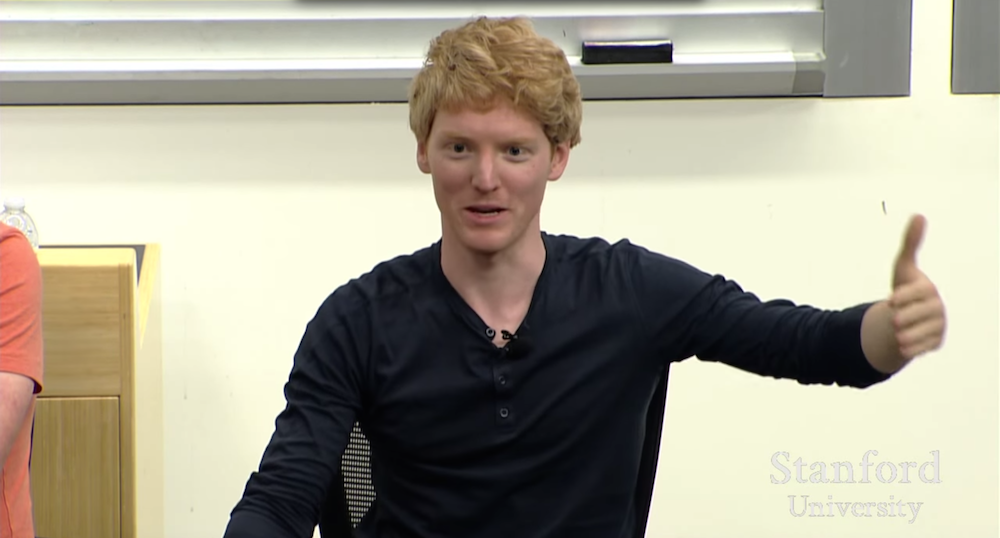
Stanford course CS183B: How to start a startup . Started in 2012 under the leadership of Peter Thiel. In the fall of 2014, a new series of lectures by leading entrepreneurs and experts of Y Combinator took place:
Second part of the course
First part of the course
- Sam Altman and Dustin Moskowitz: How and why to create a startup?
- Sam Altman: How to build a startup team and culture?
- Paul Graham: An Illogical Startup ;
- Adora Chung: Product and honesty curve ;
- Adora Chyung: Rapid startup growth ;
- Peter Thiel: Competition is the lot of the losers ;
- Peter Thiel: How to build a monopoly?
- Alex Schulz: Introduction to growth hacking [ 1 , 2 , 3 ];
- Kevin Hale: Subtleties in working with user experience [ 1 , 2 ];
- Stanley Tang and Walker Williams: Start Small ;
- Justin Kahn: How to work with specialized media?
- Andressen, Conway and Conrad: What the investor needs ;
- Andressen, Conway and Conrad: Seed Investment ;
- Andressen, Conway and Conrad: How to work with an investor ;
- Brian Chesky and Alfred Lin: What is the secret of company culture?
- Ben Silberman and the Collison Brothers: Nontrivial Aspects of Teamwork [ 1 , 2 ];
- Aaron Levy: B2B Product Development ;
- Reed Hoffman: About Leadership and Leaders ;
- Reed Hoffman: On Leaders and Their Qualities ;
- Keith Rabois: Project Management ;
- Keith Rabois: Startup Development ;
- Ben Horowitz: Dismissals, promotions and transfers ;
- Ben Horowitz: Career Tips, Westing and Options ;
- Emmett Shire: How to conduct interviews with users;
- Emmett Shire: How Twitch talks to users ;
- Hossein Rahman: How hardware products are designed at Jawbone;
- Hossein Rahman: The Design Process at Jawbone.
Sam Altman: Our guest is Ben Silberman, the creator of Pinterest, as well as John and Patrick Collison, the founders of Stripe. These people must have the best understanding of corporate culture and team building issues.
Today we will discuss three topics. To begin with, as part of summing up the previous lecture, we will generally discuss corporate culture. After we will analyze in detail examples from the experience of the above-mentioned companies and the process of creating a team of first employees. Then we will discuss the change and development of teams after their companies have become large, and also learn how they worked with the corporate culture.
I do not know the exact number of employees in their companies [on Pinterest and Stripe] today, but I know that these are very large organizations. And to begin with, I would like to ask a rather simple question: what are the key components of corporate culture that turned out to be the most important when creating firms?
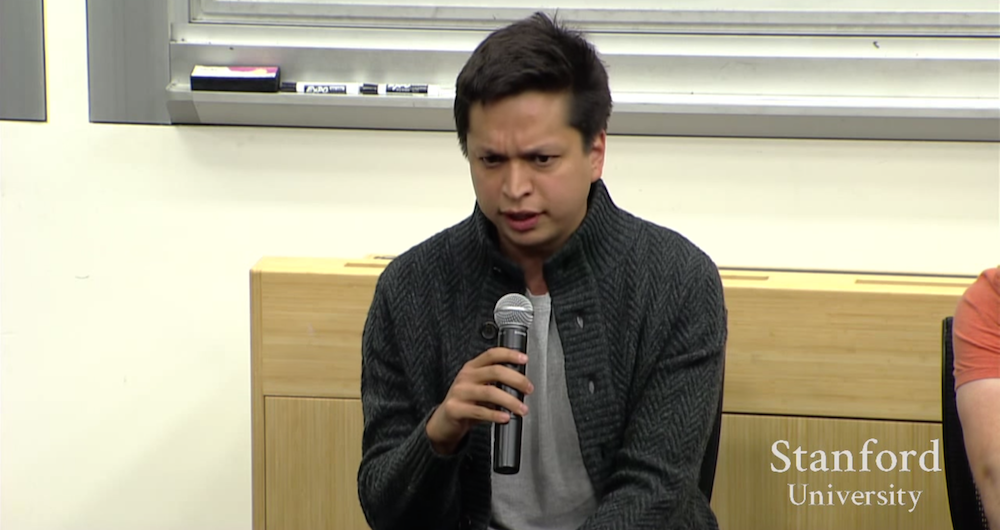
Ben Silberman: Good. You ask what is the most important? In our company, we pay attention to several points. First, what are the people we hire and what are their values? Secondly, what do we do every day and why do we do it? Then, what do we want to share, and how to reward employees for their work?
This, accordingly, is followed by the question of how to punish employees, but in general, I believe that if you conduct activities focusing on the reward system, this gives better motivation than if you focus on the punishment system. These four points are key to our company.
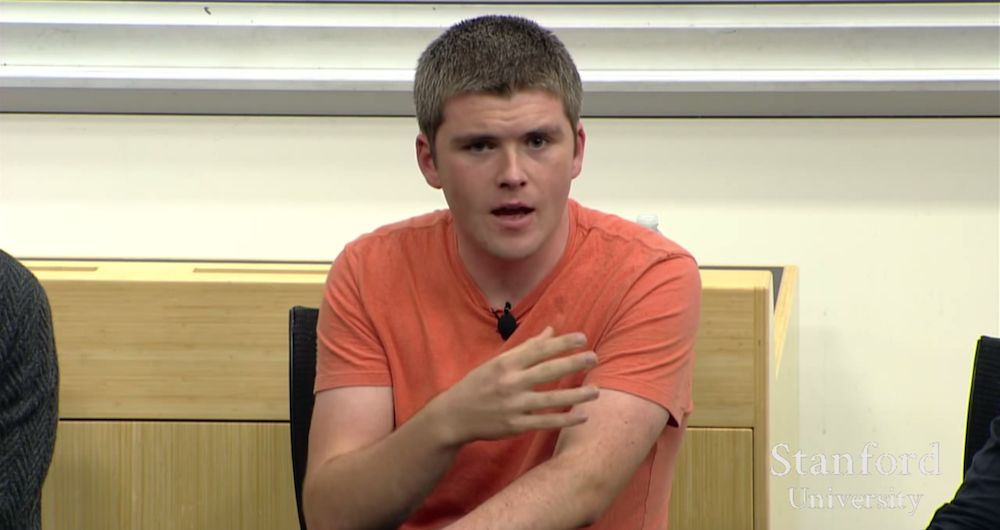
John Collison: What is more emphasized at Stripe than at other firms is the constant openness of information. I believe that she has always been of great importance to Stripe, but at the same time there is some misunderstanding regarding her. People mostly talk only about hiring truly talented people and giving them major powers.
In our case, informational transparency contributes to this. We believe that if everyone is well aware of Stripe's activities and genuinely shares the ideas of the company, while everyone has free access to information and a good idea of the current status of Stripe, all of this helps to effectively carry out teamwork.
It also allows you to forgive the company many mistakes if something goes wrong in the process of developing a startup, as often happens. When our company became quite large (in the beginning we had only two people - now we have one hundred and seventy employees), we spent a lot of effort on creating a system that ensures information transparency. Because, when the company employs 170 people, it is necessary to give them so much information that it can no longer be transmitted to all employees in some traditional way. Therefore, we use e-mail and similar tools - later we will talk about this in more detail.
But in general, information transparency is one of the key factors for us to help us work more efficiently.
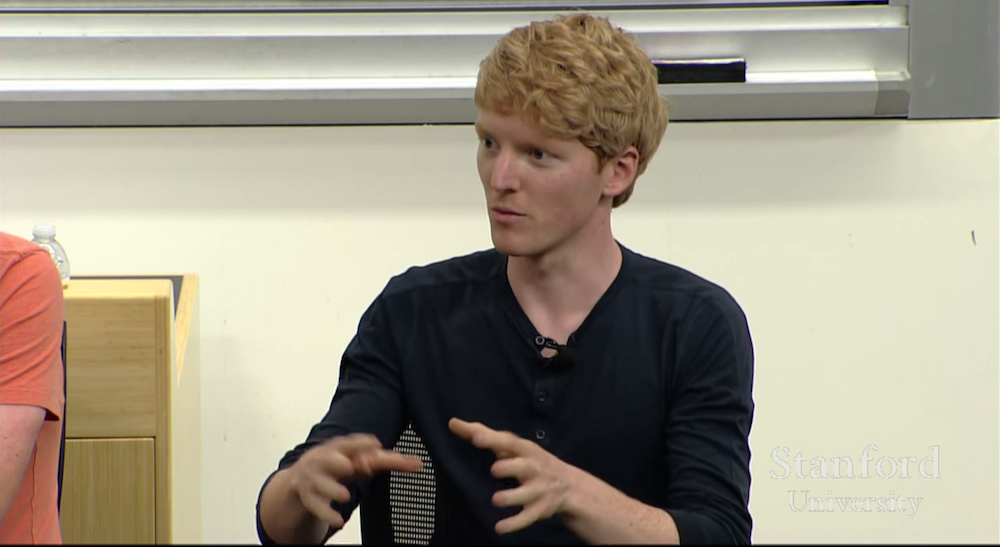
Patrick Collison: Corporate culture is, to some extent, a solution to the problems of fulfilling a large volume of tasks. For example, when you start working on a project, first you do everything yourself. But at the same time, you are not able to do all that is required to obtain the final product alone. And thus, more employees appear in the company.
In an ideal situation, you should participate in each decision of the company, but, of course, you are not capable of it. Perhaps you can cope with this task if two people work in the company, but you certainly cannot do this if you work with five or ten employees. There are 150 of them very quickly, and then this task is already absolutely impossible.
And thus, corporate culture is a certain order of relations that needs to be maintained so that as a result you participate in making fewer decisions. In this regard, the importance of culture becomes apparent.
Some of the decisions that you make directly decrease exponentially, provided that the growth in the number of employees in your company is as rapid as in the largest companies. Of course, this is extremely important.
Corporate culture is useful in many situations. For example, when recruiting employees for a company, you need to understand that by hiring ten people, you essentially indirectly hire a hundred, because each of them can bring ten more with them. And it is necessary to think already about what these 90 people will be. Everything will depend on the particular company, but on the whole, I think, the main thing is to think abstractly.
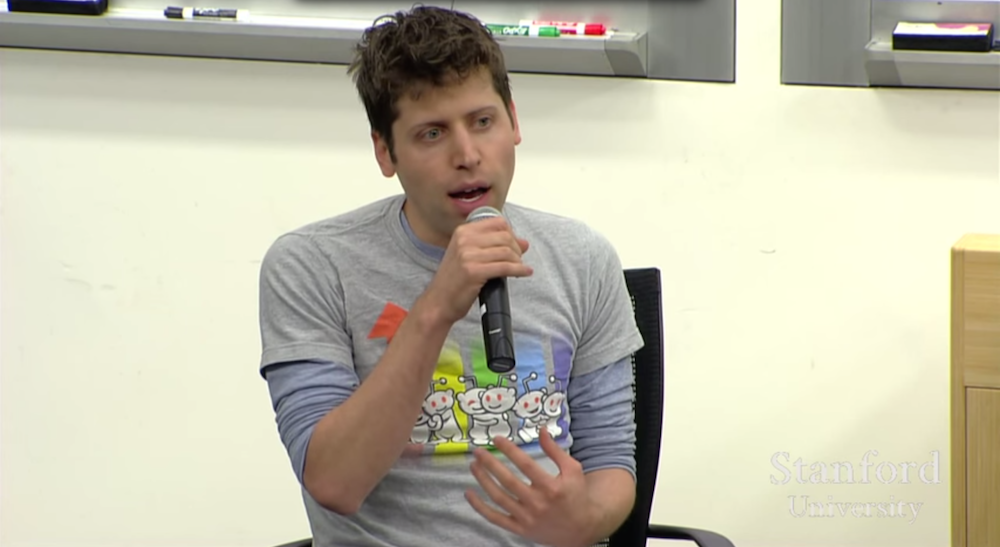
Sam Altman:Many in their speech raised the issue of hiring the first ten employees. If this is done incorrectly, in principle, the company will never be able to develop. However, none of you have told exactly how to do this. Therefore, the next question: what did you pay attention to when you were looking for the first ten people to form the right corporate culture? How exactly did you find them?
Ben Silberman: I think it all depends on the particular company. For us it was a very straightforward process. I was looking for people with whom I would like to work and whom I considered talented. I have read many books on corporate culture, because if I don’t know something, then the first thing I read about it.
All authors had their own specific concepts, but I believe that the biggest mistake is that corporate culture is perceived by people as something like the process of building buildings, while it looks more like cultivating the land. You plant grains and then pull out weeds if there are too many of them. When we hired the first employees, we looked for people more like us.
I usually paid attention to four qualities that I really appreciate in people. I was looking for hardworking people, extremely honest and unselfish. I was looking for creative and inquisitive people who would be interested in a lot of things.
Some of our first employees are some of the most unusual people. They were engineers, but at the same time they were just crazy hobbies. For example, one guy created his own board game with his elaborate rules. Another was very fond of tricks, and not only created an application for performing tricks, but also recorded a video on how he did it for the announcement. And I think it was this eccentricity that proved extremely useful.
People who are interested in many areas and who at the same time are truly outstanding in any one, usually create really high-quality things and also work great in a team.
Finally, we really appreciate people who want to create something special, and at the same time are not proud of it, who are willing to take risks and create something more important than themselves. And people have a huge choice where to go to work.
Our office, for example, at that time was in terrible condition, and no one received a salary. There were no special reasons to stay in our company, except for the desire to create something for her. Quite the contrary, there were many reasons to leave the company. And the choice of these people is what I really appreciate looking back. Because I knew that people came to us from the most honest motives, refusing other jobs elsewhere, normal salaries, clean offices and quality equipment just to be able to work in our company. Many of these qualities have been developed and strengthened in our current employees.
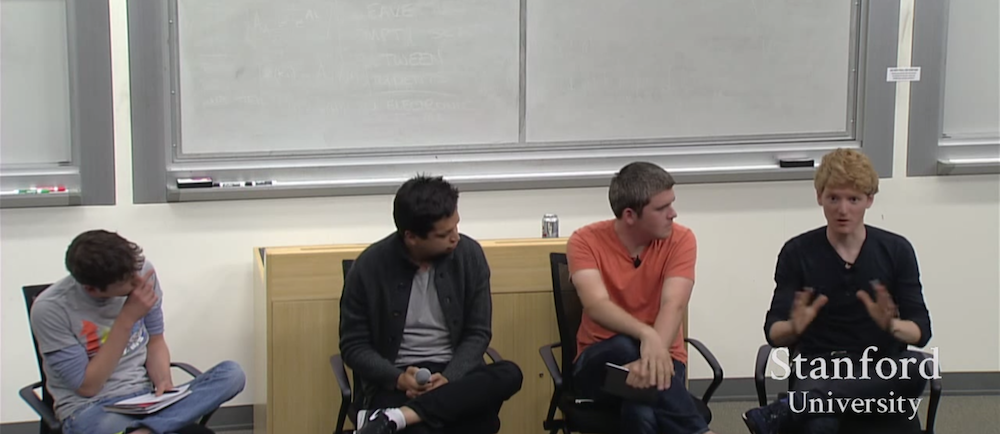
John Collison:finding the first ten employees is really difficult, because you do it at a stage when your company is still unknown to anyone. Nobody wants to work with you. You are just a couple of weird people working on some kind of weird idea.
Patrick Collison: And even friends of those you hire advise them not to go to work for your company.
For example, in the case of our second employee, when he had already accepted a job offer or was just getting ready, his best friend literally attacked him the night before, trying to explain why he should not work for us and that it would ruin his life. As a result, he nevertheless began to work with us, and in fact one of his friends now also works in Stripe.
That's what you have to deal with.
John Collison: And the difficulty also lies in the fact that no other group of employees will have such a strong influence in the company as these first ten people. But I think that in the view of most people, the search for employees is that you go to LinkedIn and simply, as in the restaurant’s menu , choose the “dishes” one after another, and thus build a team.
At least in our case, in order to do this, it took a very long time to persuade acquaintances and friends of acquaintances to go to work in our company. We did not have a large audience, and we were still in college then, so it was almost impossible to find people with whom we could work. Thus, many of Stripe's first employees were people we heard about from friends.
It is also noteworthy that they all were just starting their career, or had not yet received recognition as specialists.
If a person is already known as a good specialist, then most likely he already has a job, and it suits him. Therefore, we tried to find people such as, for example, our designer, who was eighteen, he studied in high school and was still in Sweden. Our technical director, in turn, went to college.
Many of these people were just starting their careers, and we could accept them, starting from two factors: whether they were really talented or seemed talented. And we unconsciously walked along the second path.
Patrick Collison:When you are looking for the right people, you need to think like a professional investor and look for human resources that are not yet in demand in the market. It is not worth hiring, for example, friends from Facebook, Google and similar companies, as they have already announced themselves in this area. If they themselves want to join you, that’s great, but it’s usually harder to convince such people. Yesterday afternoon, John and I tried to remember which common features characterized the first ten of our employees and which of them were the most significant. And I want to summarize everything that has been said, give concise advice, which, I think, will be useful.
Our first ten employees, among other things, possessed such important qualities as utter sincerity and directness. I believe that these are very useful qualities and it is comfortable to work with the people who possess them. People trust such employees, and they also think soberly when solving problems. Such people generally prefer to finish the job. After all, many are interested in everything in a row and only a few really seek to complete what they started.
Many are advised to look for employees on a resume from GitHub, but it seems to me not quite right, as involvement in various activities is more encouraged on this site. I believe that it is much more important to work with a person who, for example, spent two years studying a certain field .
And finally, the third quality that we wanted to see among our employees is a very serious attitude to our work. That is, when people can’t bear it, even if some little thing is done wrong.
In the past, we have done many strange things in this regard, which, perhaps, were not worth doing. How serious we and our employees were about the smallest details bordered on insanity. At that time, every time an error occurred during any API request, a message was sent to each of us by e-mail and phone.
It seemed just awful if there was an error that the user could not solve on his own. In addition, we checked the entire email for the slightest grammatical and spelling errors and corrected each other. Because we were afraid to send even one error message. One way or another, these are the three most important qualities that we have identified: sincerity, a serious attitude to work and the desire to always complete what we started.
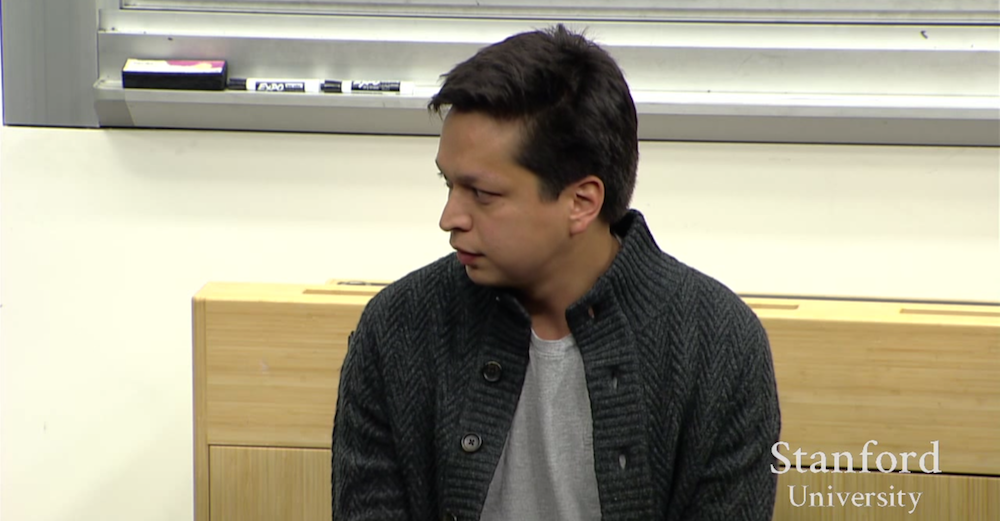
Ben Silberman: I think you can look for employees anywhere. For example, the first people we hired were from completely different places. I then placed ads on Craigslist and browsed pages on Techtalks.
We also had small “barbecue parties” in the office, brought our own food and drinks, and simply arranged for communication with the staff. And almost every time I went to buy coffee at Philz, one of your employees [Stripe workers] looked for people there for the company, because your office was strategically located next to the best coffee shop. But I believe that really useful people are most often already engaged in some other activity, and you need to look for them, and not wait when they find you. And it takes three times more effort if no one has heard of the product you are working on, or does not use it.
John Collison:Yes, and it’s also very important to create a high-quality “elevator pitch”, not only for investors, but simply because everyone you come across today can claim a place in your company in six or twelve months.
Therefore, you need to start advertising your product and have people at your company as early as possible. Recruitment takes a lot of time, so the constant promotion of your activities will subsequently be very useful.
Patrick Collison: It may be a little off topic, but some of our friends created their own companies while still studying. And we began to speculate what was wrong with their companies. And, it seems to me, their most common mistake was a very narrow specialization or inappropriate activity for them.
If you open a company while studying, then a serious discrepancy appears in time intervals. The educational process involves dividing into semesters, while the existence of a company in a startup format takes from five to ten years. And I think that this brings a lot of problems, since in principle it is very difficult to recruit a team to conduct some kind of narrowly focused activities.
For example, if you tell someone that you are going to build a rocket for flying to Mars, this task will seem almost impossible, but at the same time incredibly cool. It is very easy to persuade people to take up its implementation. Perhaps it is better not to give any specific examples, otherwise it would seem that we are already creating some kind of startup. But if you are taken for some specific activity, generally based on “educational” tasks, then it will be much more difficult to find people who are ready to work with you.
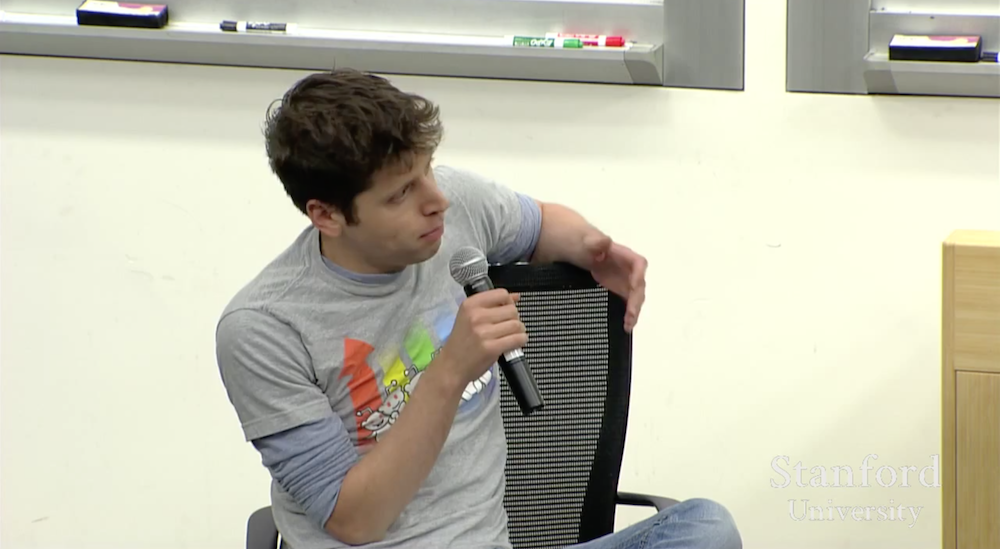
Sam Altman: A question that is often asked: how do you, as experienced entrepreneurs, determine who is an effective employee?
For example, you are going to these “barbecue parties” as friends, perhaps you have already worked together for some time. What did you specifically do to determine that a person would be a good worker? Or did it turn out that you were wrong?
When did you realize that you are able to see hidden talent in a person? Or you were guided by the fact that these people, suppose, worked on Google or Facebook and, therefore, they should be good specialists.
Ben Silberman:You cannot fully know what they are until you work with these people. On the other hand, if the person you hired is not a very good employee, then your responsibility to him and to the company is to explain what needs to be improved in your work. If he fails, then you fire him. But in general, the issue of employee talent is resolved in two main ways.
The first way: you can intuitively determine the presence of qualities that allow a person to effectively perform work. And in some cases you can test your intuition, and in some not. And in those situations where you cannot do this, everything is much more complicated, and we need to do a few things.
Before discussing this issue with someone, it is necessary to find out who is a highly qualified specialist in this field of activity according to international standards. You understand how important this is, a little later, when you have to hire the head of the financial department, and you do not know anything about finances, except for the information contained in the book that you took from the library. For example, the book "Introduction to Economics and Marketing."
Therefore, I made it a rule to consult with people who are already good specialists according to international standards, and find out from them what qualities are necessary for their field of activity. What questions would they ask? And how to find the right people? If you need a specialist of the same level as them, does he work somewhere now and what is his phone number?
Finding out what is suitable and what is not, already in the process of talking with a potential employee, is very expensive. It takes a lot of your time and that of another person. Therefore, you need to use some alternative approach.
One way or another, after you begin to conduct interviews, over time you learn to do this more and more effectively. On Pinterest, we use a questionnaire with questions that is regularly updated and updated.
We constantly ask ourselves whether these questions are effective indicators of the skills of a person. Another thing that allows us to determine these questions is whether the person is suitable for this work or not.
You guys highlighted this point quite clearly and clearly, mentioning the solution to complex and simple problems. Truly talented people strive to work on complex tasks and solve serious problems. Therefore, Google acted very correctly when they sent people difficult questions to test applicants, and after that people who like to solve difficult problems tried to handle them.
It is important that companies that become large are not afraid to take risks. I heard that when you come to get a job at PayPal, after the interview you are told that in fact Mastercard is trying to destroy them and you will have to engage in illegal activities, but if you manage, then all this will pay off well.
Or, for example, when Apple recruited people to work on the iPhone, the company did not even tell the applicants what they would do. They were told that they would not see their families for three years, but when everything is done, their children will remember what these people created.
And it’s right that you explain to applicants in great detail why this or that task is an excellent idea, but at the same time you don’t go too far into unpleasant details about what difficulties await them. And after that, the appropriate people themselves choose whether to take up this business or not.
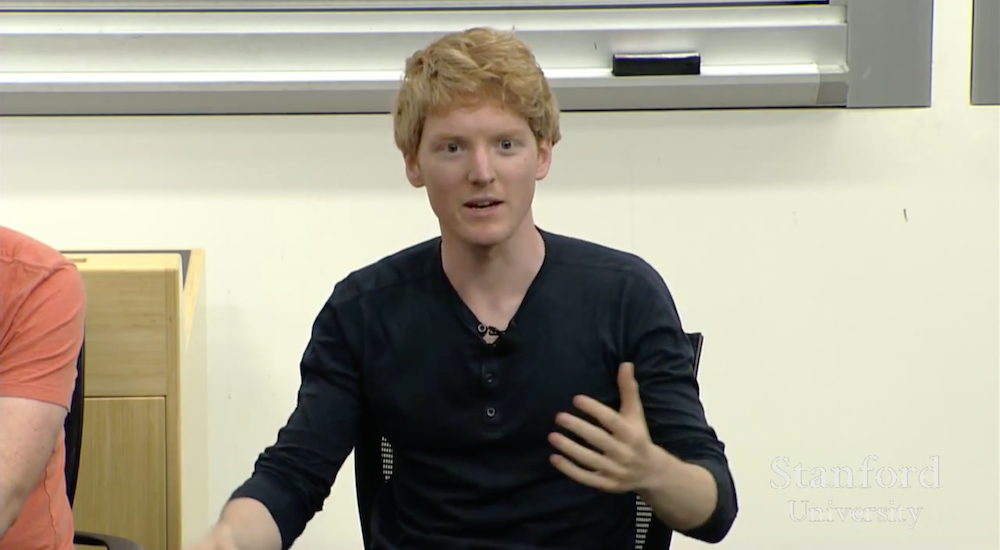
Patrick Collison: Evidence, however, suggests that these people had the opportunity to see their children.
John Collison: It seems to me that in determining the skills of a person it is necessary to be as confident as possible in your choice. For example, consider a situation where you are not the best engineer in the world and at the same time conduct interviews with candidates for the positions of engineers.
There is a desire to control everything that employees do, make them submit reports on all work, and so on.
We at Stripe had a case when we called a person to the office and spent the weekend typing the program code with him and looking over his shoulder. Only in this way could we determine its level and make sure that it can work well. And it seems to me that this approach can be applied to employees of any direction in which you do not understand.
I am not an expert on business development, but when we look for employees for similar positions, we discuss a specific project with them, ask how they would improve real Stripe projects, and what new projects they would offer for the company, and which of them would they began to engage. And even if I am not an expert in this, I am confident enough that I can correctly evaluate their answers. But people are often unsure of their judgment and are very worried that they can hire an incompetent person.
Patrick Collison: Specific advice on recruiting the first ten people: work with them as long as possible before hiring them. When your company becomes large enough, it is already impractical, as it leads to a big loss of time on the part of applicants, and at the same time it costs you a lot and indicates the lack of proper experience on your part. But with regard to the first ten people, this is very useful.
In most cases, for the sake of fidelity, we pre- worked with each of the first ten employees for a week . It is very difficult to perform quality work that is not suitable for you within a week, and usually everything soon becomes clear. I would also like to supplement the answer to the question of how to determine whether a person will work effectively.
People talk about the principle of “ten additional employees” (10x employees) or what skill set is required. I have no idea about the idea of "ten additional workers." But there is a more intuitive approach to determining the effectiveness of potential employees: to identify whether a particular person is the best among his friends engaged in certain activities.
It may be a little cynical when a person prefers to one of his friends, but for me it is a good way to determine the right employee: I will find out if the engineer is the best among the engineers he knows.
As for finding the first ten employees, corporate culture and creating a team, it seems to me that you cannot understand how important all this is if you do not go through all the stages of this activity. Most often in ordinary life and in the media, people are guided by the founders of the company. And, for example, we are sitting here now and reinforcing the conventional wisdom that Stripe is just John and Patrick, and Pinterest is Ben.
At the same time, 99% of what our companies do is created by other employees. This fact seems obvious when we discuss it, but basically no one talks about it. A company is something abstract, and it is more convenient to associate with specific people. But, for example, in Apple, Steve Jobs eventually played a very, very insignificant role.
John Collison:That is, “don't let your company down” - are you trying to say that?
Patrick Collison: Something like that.

Ben Silberman: I think that evaluating a person is very important. And this is a simple process: you just turn to experienced people to find out their personal opinion. We took this very seriously, but at the same time we just tried to find out how useful cooperation with a specific person would be.
We did not question the truth of the information in the CVs of the applicants and assumed that they were telling the truth. The standard question at the interview was something like: “We both know Jonathan and are friends with him, and if I ask him what you do best, what are you most proud of or how you are developing, what will he answer?”
This makes it possible to find out how knowledgeable a person is about his own abilities and at the same time contributes to the fact that he will give more honest answers. After I usually ask something that makes me think about the above questions (usually quite simple) more seriously, and then gradually adjust the direction of the conversation as necessary.
To assess the level of competence of this person, you need to understand whether he belongs to 1 percent of your best employees, 5 percent of less efficient employees or 10% of some others. This gives the applicant uniqueness, and it becomes possible to compare it with other employees. It will be more effective than just asking: "What are the best qualities John has?" and they will answer you: “He is good in this and that. Does this suit you? ”And you say“ Yes, of course. ” Thus, the interview must be taken very seriously.
John Collison:Of course, it’s not so easy to immediately evaluate an individual. However, over time, this proves to be very useful. In addition, when giving recommendations and naming someone’s specific names, people try to be extremely tactful, so you need to convince the person you’re talking about as if you don’t have enough employees and, for example, ask how he would rate a certain person compared to people with with which the interlocutor works. You need to try to conduct a 15-minute conversation over the phone and not allow your interlocutor to simply say that this or that person is an excellent employee and that’s all.
[ Translation of the second part of the lecture ]
